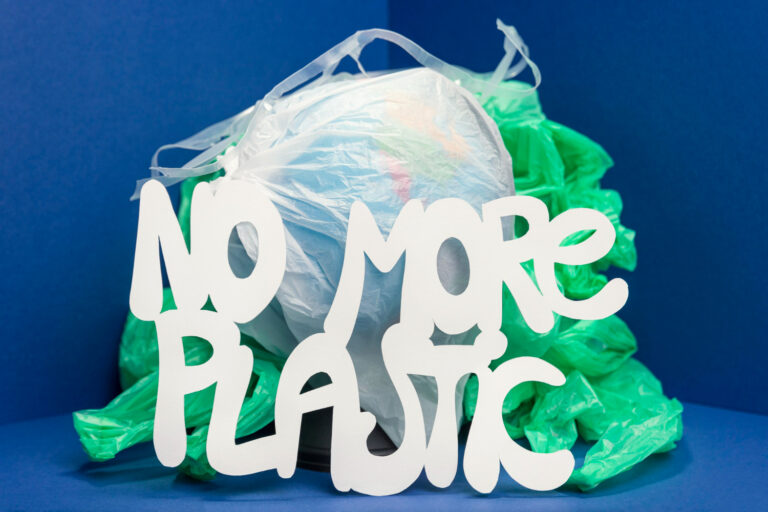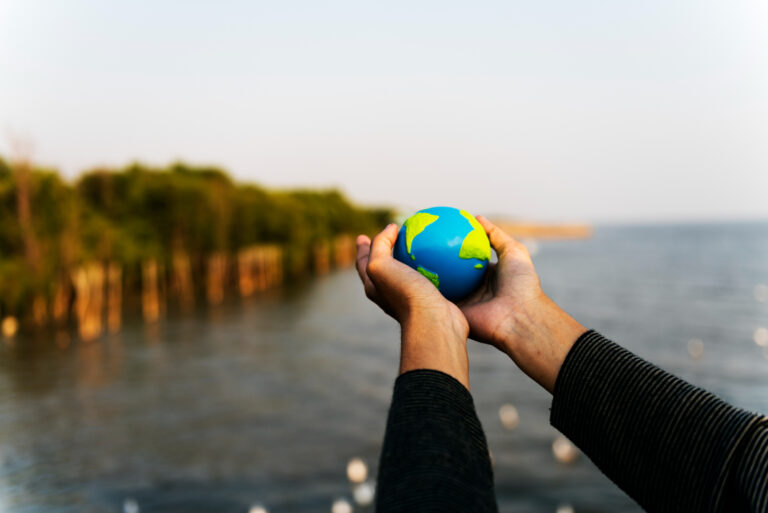Plastic has revolutionized industries and improved our quality of life by giving convenience. However, the overuse of plastic has resulted in an environmental disaster that endangers the Earth itself, which is where we call home. One of the most urgent problems of our day is plastic pollution, which harms ecosystems, animals, and human health in ways that cannot be repaired. We discuss the idea of a “Plastic-Free Planet” and the coordinated efforts required to protect our planet for next generations.
The Plastic Predicament
Plastic pollution is a global crisis that affects every corner of the Earth. From plastic bags and bottles to microplastics and single-use items, plastic waste ends up in landfills, oceans, and waterways. These materials take hundreds of years to decompose, leaching harmful chemicals into the environment along the way. Marine life mistakes plastic debris for food, leading to devastating consequences for aquatic ecosystems.
The Impact on Wildlife and Ecosystems
Marine creatures, such as seabirds, turtles, and whales, are among the most affected by plastic pollution. They ingest or become entangled in plastic debris, resulting in injury, starvation, or death. Furthermore, plastic waste disrupts natural ecosystems, altering habitats and threatening biodiversity.
Human Health Concerns
The implications of plastic pollution are not limited to the natural world. Plastic particles have infiltrated our food chain, and microplastics have been found in seafood, tap water, and even the air we breathe. These microplastics can contain toxic chemicals, leading to potential health risks for humans, including hormonal disruption and other long-term health issues.
Steps Towards a Plastic-Free Planet
- Raising Awareness
Creating a plastic-free world begins with awareness. Governments, non-governmental organizations (NGOs), and communities must join forces to educate people about the consequences of plastic pollution. This includes highlighting the importance of reducing, reusing, and recycling plastic items.
- Legislation and Policy
Governments play a crucial role in curbing plastic pollution through the implementation of effective policies and regulations. Bans or restrictions on single-use plastics, promoting sustainable alternatives, and incentivizing plastic recycling are some measures that can be adopted.
- Innovation and Sustainable Alternatives
Encouraging innovation in sustainable materials is vital to eliminating plastic’s pervasive presence. Biodegradable, compostable, and reusable alternatives to plastic should be developed and embraced by industries and consumers alike.
- Plastic-Free Initiatives
Individuals, businesses, and organizations can lead the charge by participating in plastic-free initiatives. This might involve adopting plastic-free lifestyles, organizing beach cleanups, supporting eco-conscious brands, and promoting sustainable practices in workplaces.
- Recycling and Waste Management
Improving waste management systems and infrastructure is key to reducing plastic leakage into the environment. This includes investing in recycling facilities, supporting waste-to-energy projects, and encouraging responsible disposal habits.
- Corporate Responsibility
Businesses need to take responsibility for their plastic footprint. By adopting sustainable packaging practices and reducing single-use plastic in their operations, companies can lead by example and inspire positive change across industries.
- Global Collaboration
The plastic pollution crisis transcends borders, making international collaboration crucial. Governments, businesses, and organizations must work together to find innovative solutions and share best practices in tackling plastic waste.
Continuing the Journey to a Plastic-Free Planet
- Education and Empowerment
Education is a powerful tool in the fight against plastic pollution. Schools, universities, and community centers can incorporate environmental awareness into their curriculum to empower the younger generation with the knowledge and motivation to create change. Additionally, providing resources and information on sustainable practices equips individuals to make informed choices and take action in their daily lives.
- Plastic-Free Events and Festivals
Festivals and events generate substantial amounts of plastic waste. Event organizers can commit to hosting plastic-free gatherings by encouraging attendees to bring reusable containers, utensils, and water bottles. Implementing recycling stations and composting facilities on-site further reduce the environmental impact of these events.
- Engaging the Tourism Industry
Tourism is a significant contributor to plastic pollution, especially in coastal areas and popular destinations. Governments and local communities should collaborate with the tourism industry to promote eco-friendly practices and reduce plastic waste. Initiatives like “plastic-free tourism zones” and sustainable tourism certifications can encourage businesses to adopt environmentally responsible policies.
- Supporting Circular Economy
Moving towards a circular economy is an essential aspect of eliminating plastic pollution. The circular economy focuses on minimizing waste by recycling, repurposing, and reusing materials, including plastics. Supporting businesses that embrace circularity in their supply chains encourages sustainable consumption patterns.
- Beach Cleanups and River Restoration
Community-led beach cleanups and river restoration projects are effective ways to directly combat plastic pollution. By engaging volunteers and local communities, these initiatives raise awareness about the issue while making a tangible difference in cleaning up plastic waste from natural habitats.
- Consumer Awareness and Conscious Consumption
As consumers, we have the power to influence market trends. By choosing to support products and brands that prioritize sustainability and reduce plastic packaging, we can create demand for eco-friendly alternatives. Consumer pressure can drive industries to adapt to more environmentally friendly practices.
- Collaboration with Non-Profit Organizations
NGOs and environmental organizations play a vital role in addressing plastic pollution. Partnering with these groups can amplify efforts, share resources, and implement large-scale initiatives to combat plastic waste on regional and global levels.
- Reimagining Packaging Design
Businesses should invest in research and development to create packaging that is not only sustainable but also attractive and functional. By redesigning packaging with environmental impact in mind, companies can make significant progress towards reducing plastic waste.
- Supporting Waste Pickers and Informal Recycling Networks
In many parts of the world, waste pickers and informal recycling networks play a critical role in managing waste. Supporting and integrating these workers into formal waste management systems can enhance recycling rates and reduce plastic leakage into the environment.
Plastic-Free Initiatives in Schools and Universities
Educational institutions can play a pivotal role in instilling environmentally conscious values in students. Implementing plastic-free initiatives within campuses, such as banning single-use plastics in cafeterias and promoting the use of reusable water bottles, sets an example for young minds. Schools and universities can organize workshops, seminars, and sustainability fairs to foster a sense of responsibility towards the environment among the student community.
Innovative Technologies
Embracing innovation can lead to groundbreaking solutions in the battle against plastic pollution. Researchers and entrepreneurs are continually exploring new technologies like biodegradable plastics, plastic-eating enzymes, and advanced recycling processes. Governments and businesses should support these ventures through funding, grants, and collaboration to accelerate the adoption of eco-friendly technologies.
Plastic-Free Cities and Communities
Encouraging the development of plastic-free cities and communities is a tangible way to combat plastic pollution at a local level. City councils can introduce policies to limit single-use plastics in public spaces, support sustainable businesses, and incentivize citizens to participate in recycling and waste reduction programs.
Sustainable Supply Chains
Companies can take a holistic approach to reducing their plastic footprint by evaluating their entire supply chain. By partnering with suppliers that prioritize sustainability and minimizing plastic packaging throughout the production and distribution process, businesses can significantly decrease their environmental impact.
Corporate Social Responsibility (CSR) Initiatives
Large corporations have the power to influence change and inspire other businesses by adopting robust CSR initiatives. By committing to reducing plastic waste, companies can use their resources and influence to promote a plastic-free agenda and invest in environmental conservation projects.
Plastic-Free Packaging Challenges
Organizations and governments can organize competitions and challenges to incentivize innovative packaging designs that are plastic-free and eco-friendly. Offering prizes and recognition for the best solutions can spur creativity and attract attention to the urgency of the plastic pollution issue.
Engaging Celebrities and Influencers
Leveraging the influence of celebrities and social media influencers can amplify the message of a Plastic-Free Planet. Partnering with these individuals to promote sustainable lifestyles and spread awareness can reach a broader audience and inspire more people to take action.
Plastic Waste-to-Energy Projects
Waste-to-energy initiatives can help manage plastic waste while simultaneously producing renewable energy. By investing in advanced waste-to-energy technologies, governments can address the plastic pollution crisis while contributing to the transition to a greener energy future.
International Agreements and Commitments
Collaboration on a global scale is essential in the fight against plastic pollution. Nations can come together to negotiate and sign international agreements, committing to reducing plastic waste, sharing best practices, and providing support to developing countries in managing their plastic waste.
Creating a Plastic-Free Planet demands a comprehensive, integrated approach that involves every sector of society. From individual actions to international agreements, our collective efforts can bring about significant change and pave the way to a sustainable future.
The journey towards a Plastic-Free Planet may be challenging, but it is a mission we must undertake for the well-being of our environment, wildlife, and future generations. As we embark on this path, let us remain steadfast in our commitment to making sustainable choices, advocating for policy changes, and promoting eco-friendly practices.
Together, we can shift the trajectory of our planet away from the devastating consequences of plastic pollution and towards a cleaner, healthier, and more resilient world. Embracing a Plastic-Free Planet is not just a necessity; it is a shared responsibility and a testament to our dedication to the preservation of our beautiful home, Earth.








